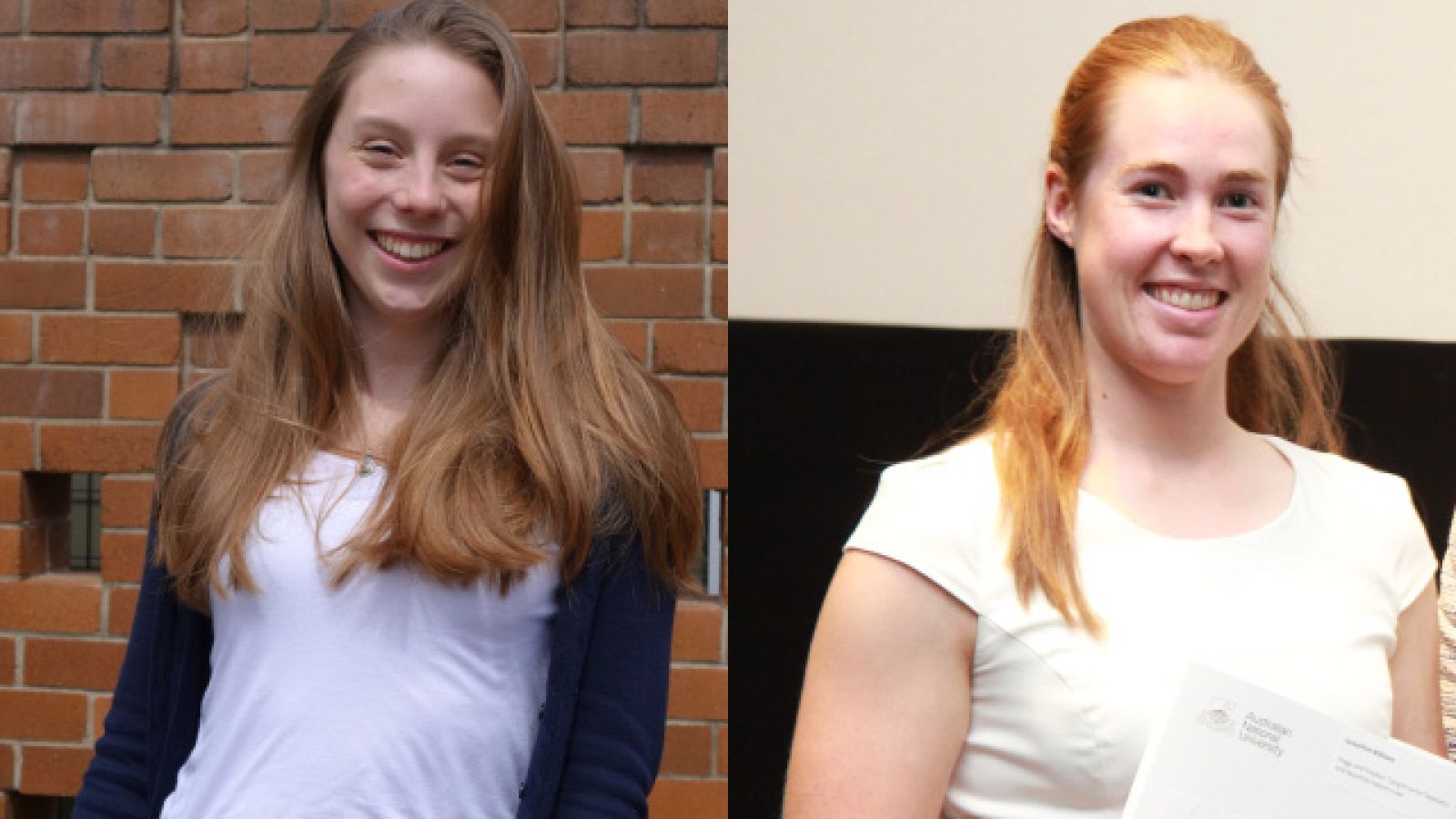ANU students place first in the world’s largest academic awards

Natalia Beghin (left) and Jacqueline Williams were global winners of two categories in the 2016 Undergraduate Awards
Two outstanding students from The Australian National University have won first prizes in the international Undergraduate Awards (UA) essay competition and will travel to Ireland for the awards ceremony.
Natalia Beghin, from the School of Politics and International Relations, was the global winner of the politics and international relations category, while Jacqueline Williams from the Colleges of Law and the Asia Pacific took out the law category.
This is the third year in a row that ANU students have won first prizes at the UA awards – the world's largest academic awards which recognise innovation and excellence at the undergraduate level. Matilda Gillis and Weng Kin San won in 2015 and Daniel McKay in 2014.
Zack Drury, who studies in the School of Politics and International Relations with Natalia, was this year highly commended for his politics and international relations essay. Amelia Noble, who is studying a Bachelor of Laws / Bachelor of Music, along with Harita Sridhar and Prashant Kelshiker were also highly commended for their law essays.
Natalia wrote her essay Perverting the Panopticon: Feminism, Peace, and the prospect of a ‘new Totalitarianism’ while on a study exchange in England.
“I was highly commended in the UA prizes in 2015 and really liked the experience, so when I got the email from ANU I thought I’d apply again,” theBachelor of Arts / Master of International Affairs student says.
“I’ve always had a really big interest in peace-making and gender-based violence, and tried very hard to mix that into my essay.”
Jacqueline’s essay Enforcement Regime of the Australian Securities & Investments Commission (ASIC) under Chapter 7 of the Corporations Act: Reform Required tackles an aspect of the law some lawyers dislike.
“Many people say they don’t like Corporations Law because it involves lots of rules, but that’s why I like it. I like the regulatory frameworks of corporations law and how regulators are supposed to fix things if they don’t work properly,” Jacqueline says.
Jaqueline is looking forward to graduation and using the skills she learned at university in her future career.
“Unlike many law students, I didn’t initially choose to study law because I wanted to become a lawyer.
“I enrolled because of the analytical skills the degree would help me to develop. But the more I’ve studied, the more interested in the law I’ve become.”
Natalia, in the meantime, says she expects to graduate in mid-2017.
“I’m focussed on working in the aid or development fields and am considering my options at the moment.
“I want to be a policy-maker, for example, helping improve access to medicines, or working on food security.”
She's enjoyed her time at ANU and cited her international relations lecturer, Dr Kim Huynh, as being one of her inspirations.
"He encouraged creativity in thought and a general sense of questioning and wonder," Natalia recalls.
"I was enriched by his teaching and am particularly indebted to him"